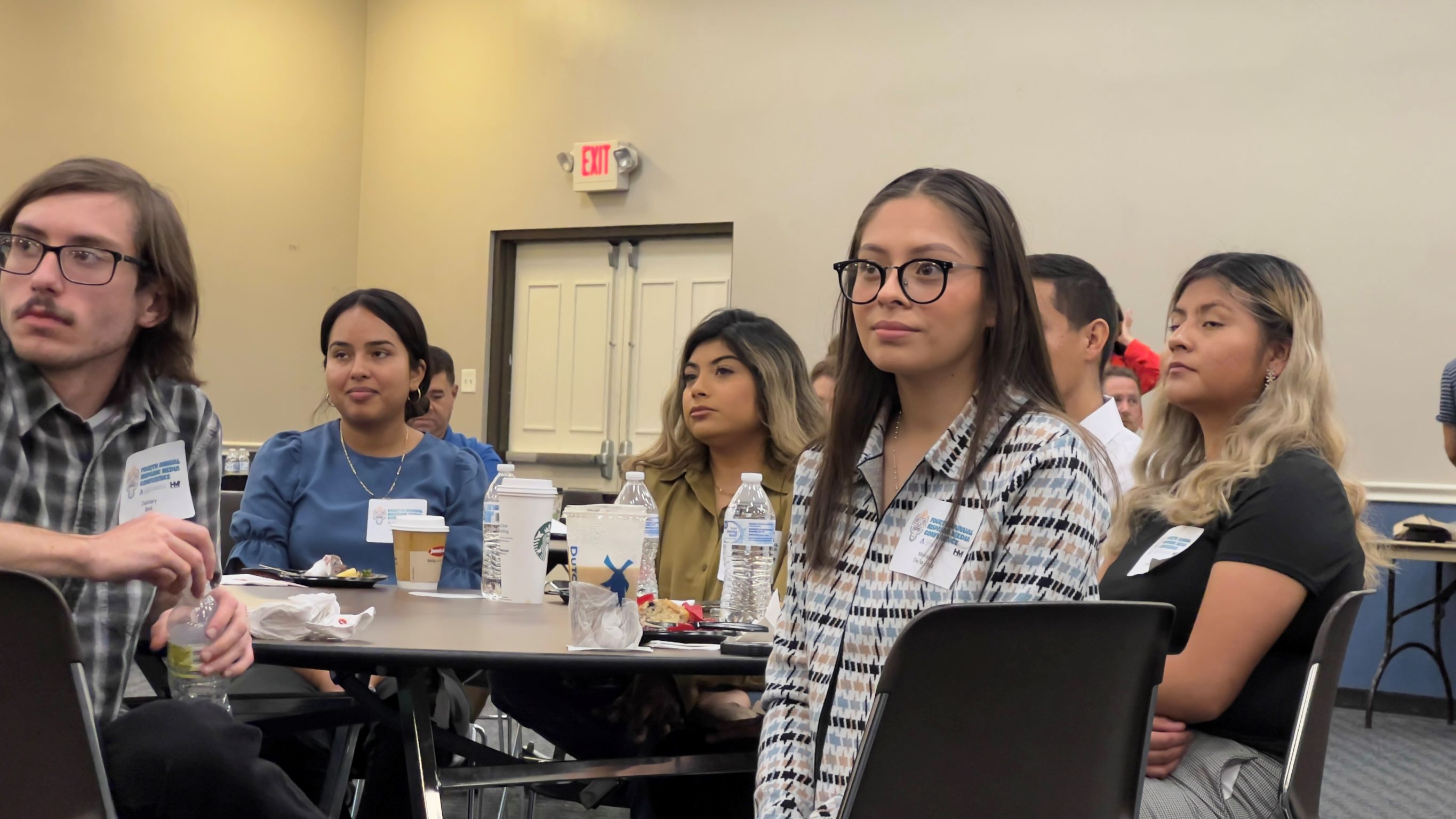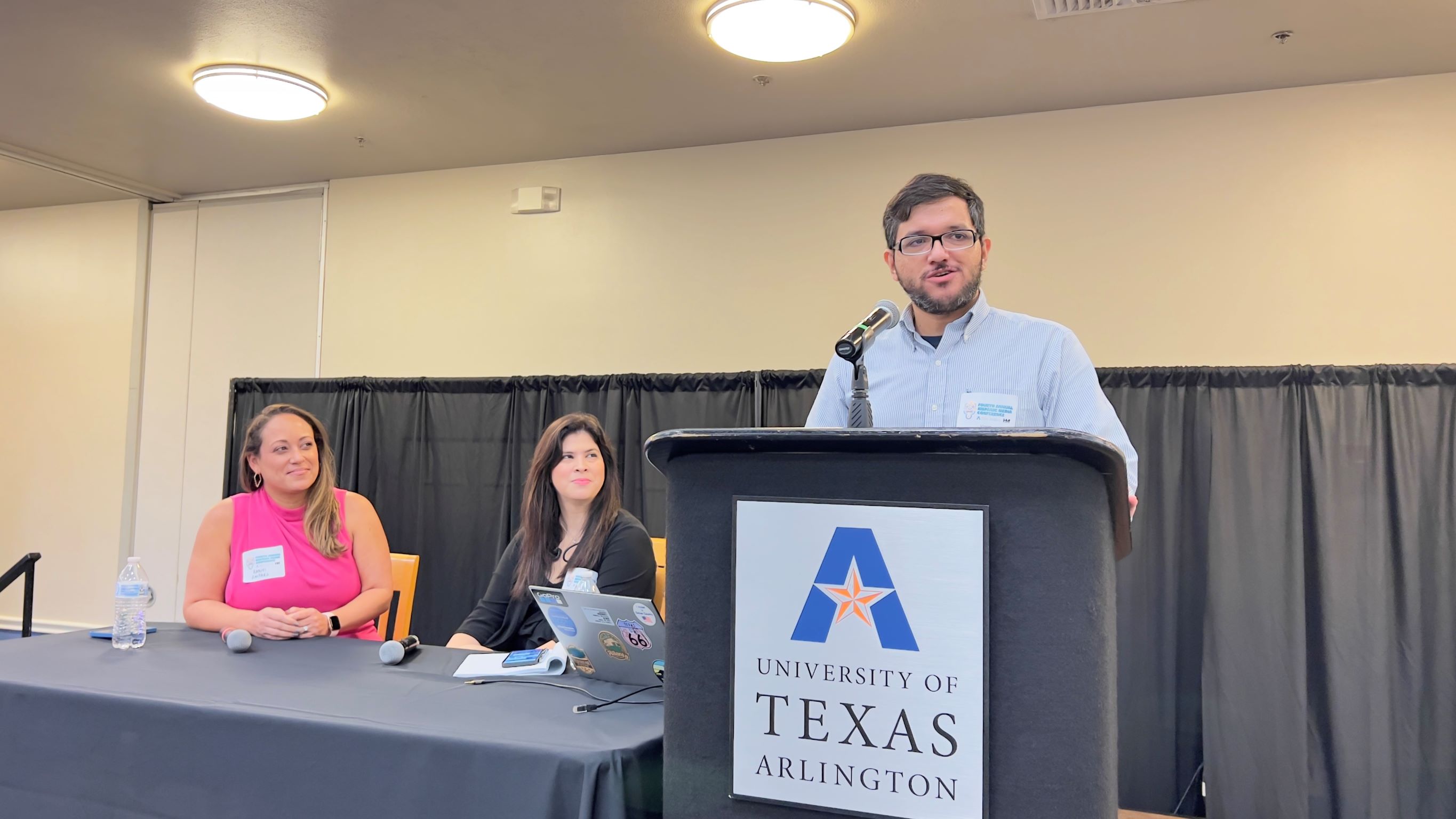‘Tell the stories that make people care’

The University of Texas at Arlington hosted its annual Hispanic Media Conference over the weekend, bringing together media experts and students to uncover how the industry is evolving and develop new professional skills.
Attendees from across the state and as far as Oklahoma and Georgia learned about journalism, public relations and sports marketing best practices through a Hispanic media lens.
Melissa de la Cruz, a UTA junior majoring in broadcasting who aims to one day be an anchor for Spanish television news, said the conference was a great opportunity to network and seek out mentors.
“I want to meet people who have gone through this career journey and know what it’s like,” she said. “I wanted to hear their stories.”
De la Cruz said she has been passionate about journalism since her middle school days when she was the editor of the school newspaper.
“I want my generation to understand the importance of credible news sources and to see people on television who look like them,” De la Cruz said. “I want to represent my generation and also represent bilingual women in the media industry.”
The event was sponsored by UTA’s Department of Communication, Hispanic Media Initiative, Division of Student Success, Center for Mexican American Studies, University Crossroads and Latinx Faculty and Staff Association.
UTA’s Hispanic Media Initiative focuses on Hispanic media education, journalism and research. Since its beginning in 2010, the program has seen both 100% graduation and job placement rates for Mavericks.

“I’m very passionate about what our audience needs, and what our audience needs is for us to provide a service,” said Sussy Ruiz, (’02 BA, Broadcast Communication), current editor-in-chief for The Weather Channel en Español and guest speaker at the conference. “Stand up for what you believe in and tell the stories that make people care.”
Raquel Amparo, president and general manager for CBS Television in Dallas-Fort Worth, told students that “journalism has never been more relevant” than it is now.
“If you don’t shine a spotlight on an issue, what’s going to be done about it?” Amparo asked. “We’ve never had a higher responsibility to make sure we are reaching disenfranchised communities and making sure that the voices we include in content represent the communities we serve.”